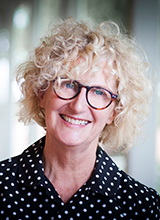Keynote: After Latour, Legacies and Trajectories
Date & Time: 26th October 3:30pm - 5:30pm. Powerhouse Museum, Ultimo
A little more about the session
Keynote speakers respond to three questions in relation to the life and work of Bruno Latour. Thinking with Latour’s scholarship has worked to shape the relationship between the social and natural sciences, how humanity both understands and responds to a new climatic regime and how the climate crisis has decentered humanity. How do we reshape a planetary political Ecology of cosmopolitics? How do we renegotiate terms and forms of life on an altered planet?
Biographies
 Stephen Muecke Stephen Muecke | Stephen Muecke is a research professor at the Nulungu Research Institute Notre Dame University, Broome, Emeritus Professor of Ethnography at the University of New South Wales, and a Fellow of the Australian Academy of the Humanities. Recent books are The Children’s Country: Creation of a Goolarabooloo Future in North-West Australia, co-authored with Paddy Roe, 2020, a translation of Philippe Pignarre’s, Latour-Stengers: An Entangled Flight, 2023, and a forthcoming translation ofBernadette Bensaude-Vincent and Sacha Loeve’s Carbon: A Biography. |
Sophie Chao | Sophie Chao is DECRA Fellow and Lecturer in the Discipline of Anthropology at the University of Sydney. Her research investigates the intersections of Indigeneity, ecology, capitalism, health, and justice in the Pacific. Chao is author of In the Shadow of the Palms: More-Than-Human Becomings in West Papua and co-editor of The Promise of Multispecies Justice. She previously worked for the Indigenous rights organization, Forest Peoples Programme. Chao is of Sino-French heritage and lives on unceded Gadigal lands in Sydney, Australia. |
 Dipesh Chakrabarty Dipesh Chakrabarty (Appearing via Zoom) | Dipesh Chakrabarty is the Kimpton Distinguished Service Professor of History, South Asian Languages and Civilizations, and the College at the University of Chicago. He is the author of several books, including Rethinking Working-Class History: Bengal, 1890–1940 (Princeton, 1989), Provincializing Europe: Postcolonial Thought and Historical Difference (Princeton, 2000), The Calling of History: Sir Jadunath Sarkar and His Empire of Truth (Chicago, 2015), and The Climate of History in a Planetary Age (Chicago, 2021). He is a founding member of the editorial collective of Subaltern Studies, a consulting editor of Critical Inquiry, and a founding editor of Postcolonial Studies. He was awarded the Toynbee Foundation Prize in 2014 for his contributions to global history and the Tagore Memorial Prize of the Government of West Bengal in 2019. |
 Gay Hawkins | Gay Hawkins is a professor of social and cultural theory at the Institute for Culture and Society, Western Sydney University, and a fellow of the Australian Academy of Humanities. She has played a key role in the development of Australian cultural studies as an interdisciplinary and philosophically informed practice of social reflection. She is recognised for research in three distinct areas: the relations between culture and governance, environmental humanities, and the sociotechnical and political lives of materials. Over the last ten years she has conducted a range of major projects investigating the cultural and political history of plastic and its complex remaking of environments, economies and everyday life. Key books include: The Ethics of Waste (2005), The SBS Story: Broadcasting social diversity (with Ien Ang, 2008), Accumulation: the material politics of plastic (with Jennifer Gabrys and Mike Michael, 2013) and Plastic Water (with Kane Race and Emily Potter, 2015). |





